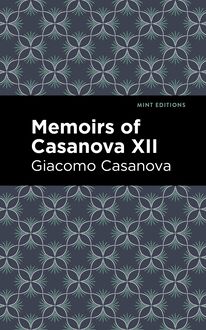-
 Univers
Univers
-
 Ebooks
Ebooks
-
 Livres audio
Livres audio
-
 Presse
Presse
-
 Podcasts
Podcasts
-
 BD
BD
-
 Documents
Documents
-
- Cours
- Révisions
- Ressources pédagogiques
- Sciences de l’éducation
- Manuels scolaires
- Langues
- Travaux de classe
- Annales de BEP
- Etudes supérieures
- Maternelle et primaire
- Fiches de lecture
- Orientation scolaire
- Méthodologie
- Corrigés de devoir
- Annales d’examens et concours
- Annales du bac
- Annales du brevet
- Rapports de stage
La lecture à portée de main
Vous pourrez modifier la taille du texte de cet ouvrage
Découvre YouScribe en t'inscrivant gratuitement
Je m'inscrisDécouvre YouScribe en t'inscrivant gratuitement
Je m'inscrisEn savoir plus
Vous pourrez modifier la taille du texte de cet ouvrage
En savoir plus

Description
The Martian (1898) is a novel by George du Maurier. Published posthumously, du Maurier’s final novel is a semi-autobiographical account of his struggle with vision loss incorporating elements of fantasy and fairy tale fiction. Originally serialized in Harper’s Magazine, The Martian is a powerful story of romance, tragedy, and redemption. “When so great a man dies, it is generally found that a tangled growth of more or less contentious literature has already gathered round his name during his lifetime. He has been so written about, so talked about, so riddled with praise or blame, that, to those who have never seen him in the flesh, he has become almost a tradition, a myth—and one runs the risk of losing all clew to his real personality.” Barty Josselin is dead, leaving it up to his friend Robert Maurice to present a fair and accurate record of his life and achievements. After graduating from the Institution F. Brossard in Paris, Barty returns to his native England. As his vision begins to fail, causing him suicidal thoughts, he is visited in a dream by a female spirit from the planet Mars. With her guidance, he becomes a renowned writer. With a beautifully designed cover and professionally typeset manuscript, this edition of George du Maurier’s The Martian is a classic of British literature reimagined for modern readers.
Sujets
Informations
| Publié par | Mint Editions |
| Date de parution | 28 septembre 2021 |
| Nombre de lectures | 0 |
| EAN13 | 9781513213538 |
| Langue | English |
Informations légales : prix de location à la page 0,0500€. Cette information est donnée uniquement à titre indicatif conformément à la législation en vigueur.
Extrait
The Martian
George du Maurier
The Martian was first published in 1896.
This edition published by Mint Editions 2021.
ISBN 9781513215532 | E-ISBN 9781513213538
Published by Mint Editions®
minteditionbooks.com
Publishing Director: Jennifer Newens
Design & Production: Rachel Lopez Metzger
Project Manager: Micaela Clark
Typesetting: Westchester Publishing Services
C ONTENTS “B ARTY J OSSELIN I S N O M ORE …” P ART F IRST P ART S ECOND P ART T HIRD P ART F OURTH P ART F IFTH P ART S IXTH P ART S EVENTH P ART E IGHTH P ART N INTH P ART T ENTH
“B ARTY J OSSELIN I S N O M ORE …”
W hen so great a man dies, it is generally found that a tangled growth of more or less contentious literature has already gathered round his name during his lifetime. He has been so written about, so talked about, so riddled with praise or blame, that, to those who have never seen him in the flesh, he has become almost a tradition, a myth—and one runs the risk of losing all clew to his real personality.
This is especially the case with the subject of this biography—one is in danger of forgetting what manner of man he was who has so taught and touched and charmed and amused us, and so happily changed for us the current of our lives.
He has been idealized as an angel, a saint, and a demigod; he has been caricatured as a self-indulgent sensualist, a vulgar Lothario, a buffoon, a joker of practical jokes.
He was in reality the simplest, the most affectionate, and most good-natured of men, the very soul of honor, the best of husbands and fathers and friends, the most fascinating companion that ever lived, and one who kept to the last the freshness and joyous spirits of a school-boy and the heart of a child; one who never said or did an unkind thing; probably never even thought one. Generous and open-handed to a fault, slow to condemn, quick to forgive, and gifted with a power of immediately inspiring affection and keeping it forever after, such as I have never known in anyone else, he grew to be (for all his quick-tempered impulsiveness) one of the gentlest and meekest and most humble-minded of men!
On me, a mere prosperous tradesman, and busy politician and man of the world, devolves the delicate and responsible task of being the first to write the life of the greatest literary genius this century has produced, and of revealing the strange secret of that genius , which has lighted up the darkness of these latter times as with a pillar of fire by night.
This extraordinary secret has never been revealed before to any living soul but his wife and myself. And that is one of my qualifications for this great labor of love.
Another is that for fifty years I have known him as never a man can quite have known his fellow-man before—that for all that time he has been more constantly and devotedly loved by me than any man can ever quite have been loved by father, son, brother, or bosom friend.
Good heavens! Barty, man and boy, Barty’s wife, their children, their grandchildren, and all that ever concerned them or concerns them still—all this has been the world to me, and ever will be.
He wished me to tell the absolute truth about him, just as I know it; and I look upon the fulfilment of this wish of his as a sacred trust, and would sooner die any shameful death or brave any other dishonor than fail in fulfilling it to the letter.
The responsibility before the world is appalling; and also the difficulty, to a man of such training as mine. I feel already conscious that I am trying to be literary myself, to seek for turns of phrase that I should never have dared to use in talking to Barty, or even in writing to him; that I am not at my ease, in short—not me —but straining every nerve to be on my best behavior; and that’s about the worst behavior there is.
Oh! may some kindly light, born of a life’s devotion and the happy memories of half a century, lead me to mere naturalness and the use of simple homely words, even my own native telegraphese! that I may haply blunder at length into some fit form of expression which Barty himself might have approved.
One would think that any sincere person who has learnt how to spell his own language should at least be equal to such a modest achievement as this; and yet it is one of the most difficult things in the world!
My life is so full of Barty Josselin that I can hardly be said to have ever had an existence apart from his; and I can think of no easier or better way to tell Barty’s history than just telling my own—from the days I first knew him—and in my own way; that is, in the best telegraphese I can manage—picking each precious word with care, just as though I were going to cable it, as soon as written, to Boston or New York, where the love of Barty Josselin shines with even a brighter and warmer glow than here, or even in France; and where the hate of him, the hideous, odious odium theologicum—the sæva indignatio of the Church—that once burned at so white a heat, has burnt itself out at last, and is now as though it had never been, and never could be again.
P. S.—(an after-thought):
And here, in case misfortune should happen to me before this book comes out as a volume, I wish to record my thanks to my old friend Mr. du Maurier for the readiness with which he has promised to undertake, and the conscientiousness with which he will have performed, his share of the work as editor and illustrator.
I also wish to state that it is to my beloved god-daughter, Roberta Beatrix Hay (n é e Josselin), that I dedicate this attempt at a biographical sketch of her illustrious father.
Robert Maurice
Part First
“De Paris à Versailles, loo, là,
De Paris à Versailles—
Il y a de belles allées,
Vive le Roi de France!
Il y a de belles allées,
Vivent les écoliers!”
O ne sultry Saturday afternoon in the summer of 1847 I sat at my desk in the junior school-room, or salle d’études des petits , of the Institution F. Brossard, Rond-point de l’Avenue de St.-Cloud; or, as it is called now, Avenue du Bois de Boulogne—or, as it was called during the Second Empire, Avenue du Prince Imp é rial, or else de l’Imp é ratrice; I’m not sure.
There is not much stability in such French names, I fancy; but their sound is charming, and always gives me the nostalgia of Paris—Royal Paris, Imp é rial Paris, Republican Paris! … whatever they may call it ten or twelve years hence. Paris is always Paris, and always will be, in spite of the immortal Haussmann, both for those who love it and for those who don’t.
All the four windows were open. Two of them, freely and frankly, on to the now deserted play-ground, admitting the fragrance of lime and syringa and lilac, and other odors of a mixed quality.
Two other windows, defended by an elaborate network of iron wire and a formidable array of spiked iron rails beyond, opened on to the Rond-point, or meeting of the cross-roads—one of which led northeast to Paris through the Arc de Triomphe; the other three through woods and fields and country lanes to such quarters of the globe as still remain. The world is wide.
In the middle of this open space a stone fountain sent up a jet of water three feet high, which fell back with a feeble splash into the basin beneath. There was comfort in the sound on such a hot day, and one listened for it half unconsciously; and tried not to hear, instead, Weber’s “Invitation à la Valse,” which came rippling in intermittent waves from the open window of the distant parloir , where Chardonnet was practising the piano.
“Tum-te-dum-tum-tum…
Tum-te-dum-di, diddle-iddle um!”
e da capo , again and again. Chardonnet was no heaven-born musician.
Monsieur Bonzig—or “le Grand Bonzig,” as he was called behind his back—sat at his table on the estrade, correcting the exercises of the eighth class (huiti è me), which he coached in Latin and French. It was the lowest class in the school; yet one learnt much in it that was of consequence; not, indeed, that Balbus built a wall—as I’m told we learn over here (a small matter to make such a fuss about, after so many years)—but that the Lord made heaven and earth in six days, and rested on the seventh.
He (Monsieur Bonzig) seemed hot and weary, as well he might, and sighed, and looked up every now and then to mop his brow and think. And as he gazed into the green and azure depths beyond the north window, his dark brown eyes quivered and vibrated from side to side through his spectacles with a queer quick tremolo, such as I have never seen in any eyes but his.
About five-and-twenty boys sat at their desks; boys of all ages between seven and fourteen—many with closely cropped hair, “ à la malcontent,” like nice little innocent convicts; and nearly all in blouses, mostly blue; some with their garments loosely flowing; others confined at the waist by a tricolored ceinture de gymnastique, so deep and stiff it almost amounted to stays.
As for the boys themselves, some were energetic and industrious—some listless and lazy and lolling, and quite languid with the heat—some fidgety and restless, on the lookout for excitement of any kind: a cab or carriage raising the dust on its way to the Bois—a water-cart laying it (there were no hydrants then); a courier bearing royal despatches, or a mounted orderly; the Passy omnibus, to or fro every ten or twelve minutes; the marchand de coco with his bell; a regiment of the line with its band; a chorus of peripatetic Orph é onistes—a swallow, a butterfly, a humblebee; a far-off balloon, oh, joy!—any sight or sound to relieve the tedium of those two mortal school-hours that dragged their weary lengths from half past one till half past three—everyday but Sunday and Thursday.
(Even now I find the early afternoon a little trying to wear through without a nap, say from two to four.)
At 3.30 there would come a half-hour’s interval of play, and then the class of French literature from four till dinner-time at six—a class that was more than endurable on account
-
 Univers
Univers
-
 Ebooks
Ebooks
-
 Livres audio
Livres audio
-
 Presse
Presse
-
 Podcasts
Podcasts
-
 BD
BD
-
 Documents
Documents
-
Jeunesse
-
Littérature
-
Ressources professionnelles
-
Santé et bien-être
-
Savoirs
-
Education
-
Loisirs et hobbies
-
Art, musique et cinéma
-
Actualité et débat de société
-
Jeunesse
-
Littérature
-
Ressources professionnelles
-
Santé et bien-être
-
Savoirs
-
Education
-
Loisirs et hobbies
-
Art, musique et cinéma
-
Actualité et débat de société
-
Actualités
-
Lifestyle
-
Presse jeunesse
-
Presse professionnelle
-
Pratique
-
Presse sportive
-
Presse internationale
-
Culture & Médias
-
Action et Aventures
-
Science-fiction et Fantasy
-
Société
-
Jeunesse
-
Littérature
-
Ressources professionnelles
-
Santé et bien-être
-
Savoirs
-
Education
-
Loisirs et hobbies
-
Art, musique et cinéma
-
Actualité et débat de société
- Cours
- Révisions
- Ressources pédagogiques
- Sciences de l’éducation
- Manuels scolaires
- Langues
- Travaux de classe
- Annales de BEP
- Etudes supérieures
- Maternelle et primaire
- Fiches de lecture
- Orientation scolaire
- Méthodologie
- Corrigés de devoir
- Annales d’examens et concours
- Annales du bac
- Annales du brevet
- Rapports de stage




















